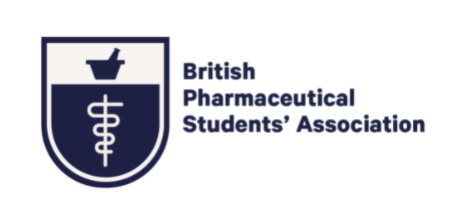Personalised Medicine – The Future of Healthcare?
Introduction
Jagraj Singh Thandi (Publication Author)
Modern pharmaceutical treatment and formulations are moving away from a “trial and error” and “one size fits all” approach to focusing on the genetic make-up of an individual in order to tailor treatment to an individual patient. Allen Roses (the worldwide president of genetics at GSK) led this revolution back in 2003 by challenging the way the pharmaceutical industry formulated medicines in a generalised fashion and called for a more personalised approach to formulation.
Personalised medicine would allow healthcare professionals to:
Predict, prevent and precisely diagnoses diseases.
Offer treatments which consider the genome of an individual.
Improve the cost-effectiveness of treatment.
Avoid potentially severe disease states and side effects associated with the use of drugs.
Drug-gene interactions
This will not only influence the decisions of pharmacists when treating patients, but also the decisions of other healthcare professionals as well. Doctors can use genetic information to see if a drug will be contraindicated for a particular patient due to a drug-gene interaction. For example, there is a high prevalence of the HLA B*1502 gene in patients of Han Chinese and Thai origin, which is associated with a severe hypersensitivity reaction (Stevens-Johnson Syndrome and Toxic Epidermal Necrolysis) when the patient is given Carbamazepine or Phenytoin. However, it is important to note that although a patient is predisposed to developing a certain disease state or side effect after taking a drug, it doesn’t mean they will develop the particular disease state or side effect. Although using genetics to inform prescribing will allow for potentially severe reactions to be avoided when there is an alternative drug which is safer to use available.
Personalised medicine influencing cancer therapy
Advancements in genomics have also shown that cancers which were once thought to be similar, may in fact be markedly different on a genetic level. These differences can influence the prognosis of a particular cancer and also how responsive it is going to be to particular treatments. This can improve the cost-effectiveness of very expensive but very effective drugs such as Trastuzumab (Herceptin), which is indicated for HER-2 (human epidermal growth factor receptor - 2) positive breast cancer. HER-2 is amplified in roughly 20-30% of early-stage breast cancers and Trastuzumab leads to an immune-mediated response and down-regulation of this receptor, preventing HER-2 from promoting cancer cell growth and division. In the UK, a 150mg vial of Trastuzumab costs £407.40, however it has been shown to be highly effective in individuals who have a high expression of HER-2. NICE recommends that it should be used in individuals who have a high expression (3+) of HER-2. Therefore, using genetic testing to determine the degree of HER-2 overexpression can greatly influence the cost-effectiveness of using Trastuzumab.
Moving towards a Digital NHS
The 100,000 Genomes Project and other Genomics Medicines Centres are essential for developing both the genomic and informatic infrastructure needed to incorporate personalised medicine into the NHS. This is in line with the “Paperless 2020” programme fronted by NHS Digital in order to move towards electronic prescribing rather than a paper-based system. However, as with any digital data there comes the inherent risk of the data being security hacked by external organisations and for information regarding a certain patient’s risk of developing a certain condition to be stolen for nefarious intent. This is a risk which applies to any information and appropriate measures can be implemented to prevent this from happening, such as using encrypted servers and firewalls.
Conclusion
Overall personalised medicine has been incorporated into various aspects of healthcare and has the potential to allow for patients to receive treatments which are very tailored towards their condition. This would allow for a better prognosis in conditions which in the past were considered untreatable and help to minimise the £1,900,000,000 cost on the NHS associated with side effects as a result of using a drug. Though the use of genetic information is not free from risk, it will allow for more informed decisions to be made and improve the cost-effectiveness of drugs regarding the prescribing, treatment and formulation of pharmaceuticals.
Further reading
Personalised medicine in the NHS: what will it mean?
What impact will personalised medicine have on pharmacy?
Might community pharmacists have a role delivering personalised medicine?

